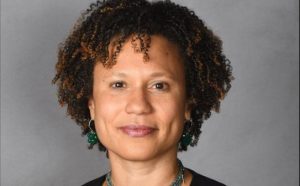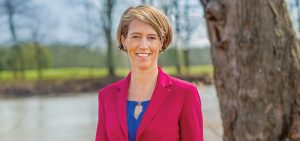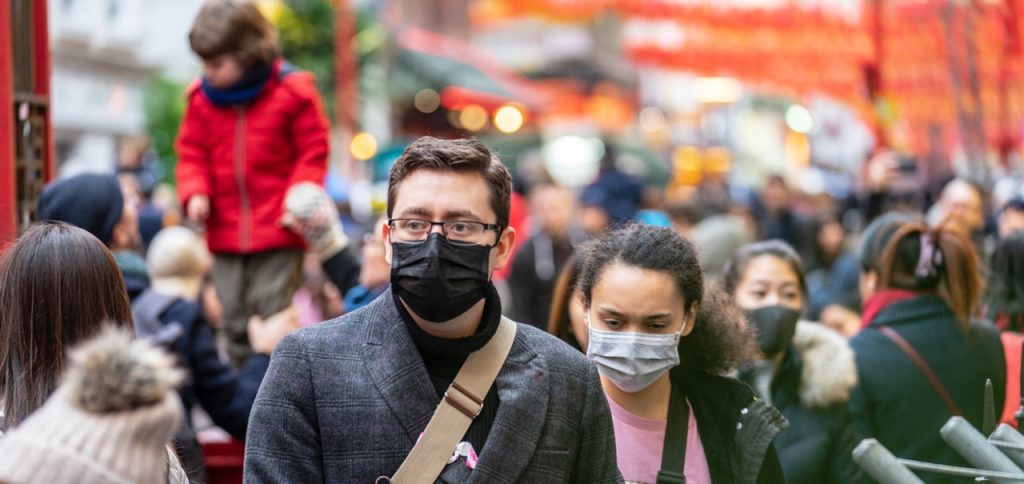As the coronavirus outbreak has exploded into a global pandemic, societies and governments around the world are grappling with a host of unprecedented issues. From isolating infected patients to the limits of presidential power to order Americans back to work, Fordham Law faculty members have weighed in with articles on a range of legal questions raised by the health crisis.

The “Color of Covid”
In an op-ed article for CNN, Professor Catherine Powell argues how the pandemic has highlighted underlying inequalities on race within the current economy.
“One example of the “color of Covid” can be found in the recent actions taken by the e-commerce giant Amazon. Many companies have been forced to cut staff drastically or shut down completely, but Amazon is one that has been expected to benefit from the pandemic. As the company saw an increase in demand in mid-March, it planned to hire an additional 100,000 full-time and part-time positions for its fulfillment centers and delivery network.”
“Many of these new lower-skilled workers — who are essential to the day-to-day success of Amazon — will likely be people of color because black and brown people continue to be disproportionately represented in lower skilled and lower paid jobs — at the bottom rung, grasping at broken ladders of opportunity.”
Read the full article.
Should Patients with Coronavirus Symptoms Self-Isolate in New York’s Hotels?

Writing in The New York Times, Professor Carl Minzner suggests that New York City should follow in Wuhan’s footsteps by creating temporary, centralized quarantine centers for those who display coronavirus symptoms.
“Faced with such a rapid increase, the lightly ill in the city will almost certainly be asked to keep staying at home — which only risks spreading the virus even more.”
“There is another solution, though: Using the tens of thousands of hotel rooms in the city, many of which currently are empty, to house people who have tested positive for the coronavirus or — given the dearth of available tests — who display mild Covid-19-like symptoms. Let’s turn hotels into temporary quarantine quarters.”
Read the full article.
Should Violent Offenders Also Be Freed from Prison Early?

For The Washington Post, Professor John Pfaff points out that the debate over releasing prisoners in the wake of coronavirus has focused on low-level offenders. He argues that the emphasis on non-violent offenders is too narrow.
“The attitude those incidents reveal — that people convicted of violent crimes are in a special category that deserves less compassion and harsher treatment — ignores the math, misunderstands human behavior and, perhaps most important, reflects a poor moral choice. Our draconian approach toward violent crime rests on viewing certain people, and certain groups of people, as not fully human. This has always been a pressing concern in criminal justice reform; during the pandemic, it is a matter of life and death.”
Read the full article.
Should Universities Open Their Dormitories and Dining Halls to Coronavirus Patients?

Professor Zephyr Teachout and Winn Periyasamy ’22 argue in The Nation that U.S. universities and colleges should voluntarily open their facilities to combat widespread community transmission of the coronavirus.
“State governments can use legal authority to requisition and convert hotel and university facilities for quarantine shelters. And they should do so—seeing universities not just as extensions of field hospitals but as places for quarantine. At the same time, educational institutions should not wait for requests. By offering shelter proactively, they would expand the options available to cities and states and give them a far greater range of places to imagine quarantines and field hospitals. University spaces are now sitting vacant, as they have sent students, faculty, and nonessential staff home to combat the virus’s spread. These spaces can save lives.”
Read the full article.
Do U.S. Airlines Need a Bailout to Stay in Business?

Washington has been quick to provide relief to airlines facing extreme losses due to the health crisis. In The Washington Post, Professor Richard Squire argues that the President Trump-approved airline bailout—which adds up to more than $50 million in loans, guarantees, and cash grants—is not necessary.
“Airlines aren’t running out of cash because their debts are coming due sooner than expected. They’re running out of cash because their revenues are much lower than expected. That’s a solvency problem, not a liquidity problem. Losses are inevitable. The only question is whether Washington leaves the losses with private investors or shifts them to taxpayers.”
Read the full article.

